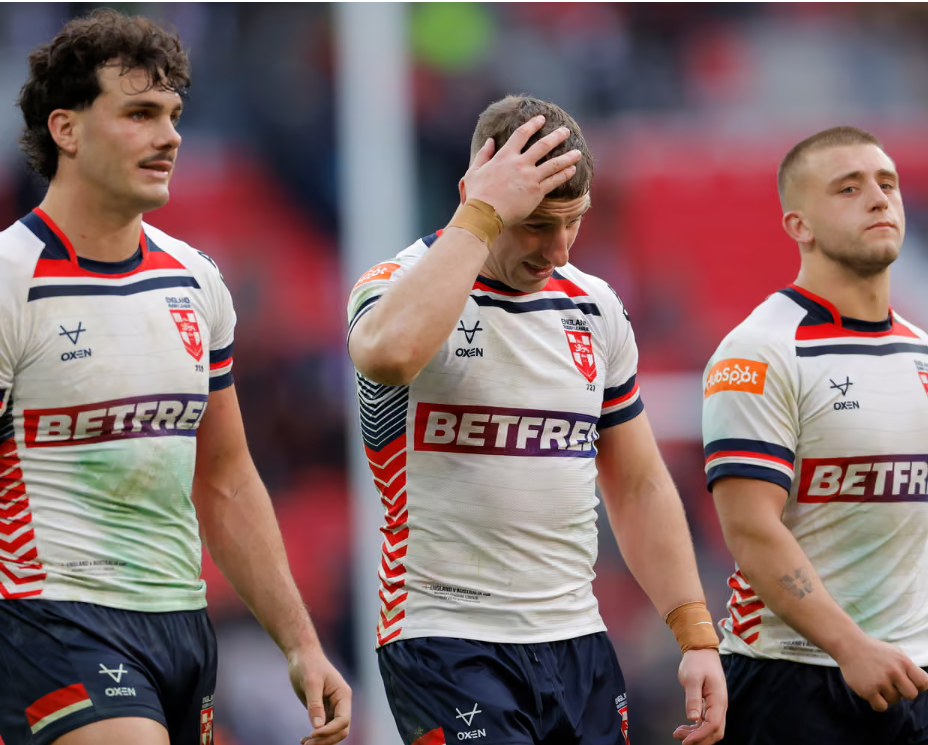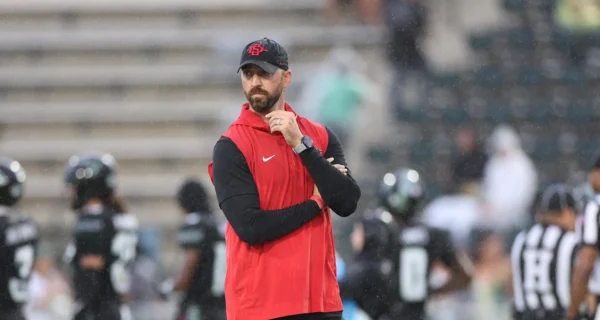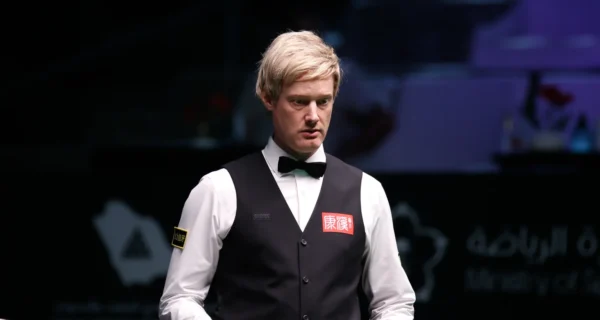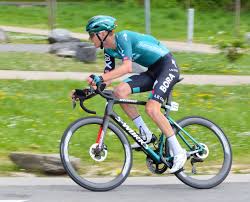England’s rugby league team will head into next year’s World Cup without a single fixture for almost 12 months.
The 2026 Super League schedule leaves no space for a mid-season international break.
After a heavy Ashes defeat to Australia, coach Shaun Wane, whose role is under review, warned that England needs more games to close the gap on the Kangaroos.
Yet whoever leads the Australian side will face the tournament underprepared.
England will have no training camp or warm-up matches before opening against Tonga in Perth next October.
With Super League expanding to 14 teams, Magic Weekend staying on the calendar, and the Grand Final moved earlier, officials admit there is simply no room for the national team.
Instead, Wane will merely be limited to off-feet meetings at hotels with his players, something he admitted this year simply wasn’t enough.
“There is no spare weekend in the calendar,” RL Commercial’s chief executive, Rhodri Jones, confirmed.
“There are weekends in Super League when there are no Sunday games, so there is an opportunity for squad gatherings.”
England have often played France in mid-season Tests. Papua New Guinea coach Jason Demetriou will take charge of the London Broncos in 2026.
He suggested the Kumuls could face England in the UK. Such a match would serve as a valuable warm-up for both nations ahead of the World Cup.
However, Jones knocked back suggestions it means England will likely be under-prepared for the tournament.
“I wouldn’t say they were,” he said.
“It’s up to Super League to deliver the intensity that gets the players ready for that international period.”
“I think it’s always well debated about who would we play. Would it be competitive? We’ve had games against France in the past and that there was a lack of contest on the field. With everything it’s if the contest is there on the field, you would look to incorporate it: but the contest isn’t there.”
The decision has sparked outrage among rugby league fans and pundits.
Critics argue that sending England into a World Cup without any international preparation is a recipe for disaster.
The team needs match fitness and cohesion that can only come from playing together competitively.
Wane’s position as head coach is already under scrutiny following the Ashes whitewash.
The 3-0 series defeat exposed the significant gap between England and Australia.
Without meaningful preparation time, that gap is only likely to widen heading into the World Cup.
The expansion of Super League to 14 teams has created scheduling complications.
Adding more teams means more fixtures that need to be accommodated in the calendar.
But prioritizing club competitions over international rugby league raises questions about the sport’s long-term direction.
Magic Weekend, where all Super League teams play at a single venue over one weekend, remains a commercial priority.
The event generates significant revenue for the sport but takes up valuable calendar space.
Some have questioned whether it’s worth sacrificing international preparation for a domestic festival.
The early Grand Final date, moved up to accommodate the World Cup, further compresses the schedule.
Ironically, the very tournament England is preparing for has limited their ability to prepare adequately.
The scheduling conflict highlights poor planning at the administrative level.
Jones’s suggestion that hotel meetings will suffice has been met with skepticism.
International rugby league requires on-field chemistry and tactical execution under pressure.
Off-feet gatherings cannot replicate the intensity and physicality of actual matches.
The comparison to France highlights another issue—the lack of competitive opponents available for meaningful mid-season Tests.
If France isn’t competitive enough, and Papua New Guinea can’t be scheduled, England’s options are extremely limited.
The sport needs to develop more competitive tier-two nations to provide quality opposition.
Australia, by contrast, will likely have multiple opportunities to prepare their squad before the World Cup.
The Kangaroos typically schedule mid-season Tests and have a stronger domestic competition.
England’s disadvantage before the tournament even begins seems stark.
Players will enter the World Cup having only played club rugby for nearly a year.
The step up in intensity from Super League to international competition is significant.
Without warm-up matches, England risks being overwhelmed in their opening fixtures.
Tonga, their first opponent, has become increasingly competitive in recent years.
They boast NRL stars and have caused upsets in previous tournaments.
England facing them without any recent international experience could produce an embarrassing result.
The situation reflects broader tensions between club and international rugby league.
Super League clubs are reluctant to release players for international duty during the season.
They prioritize their own competitions and commercial interests over national team success.
Wane’s future as coach depends largely on World Cup performance.
But he’s being set up for potential failure by not being given adequate resources and preparation time.
Judging him on tournament results without providing proper support seems fundamentally unfair.
Fans have expressed frustration on social media about the decision.
Many point out that other rugby league nations manage to balance club and international commitments.
England’s administrative challenges appear self-inflicted rather than unavoidable.
The World Cup in Australia presents a significant challenge regardless of preparation.
Playing in Australia against tier-one opponents requires the national team to perform at its peak.
Going in cold after a year without matches makes success highly unlikely.
Unless something changes dramatically, England will head Down Under as massive underdogs.
The lack of preparation time has already written the script for their World Cup campaign.
Only a dramatic turnaround in planning can prevent what many fear will be another disappointing tournament.













